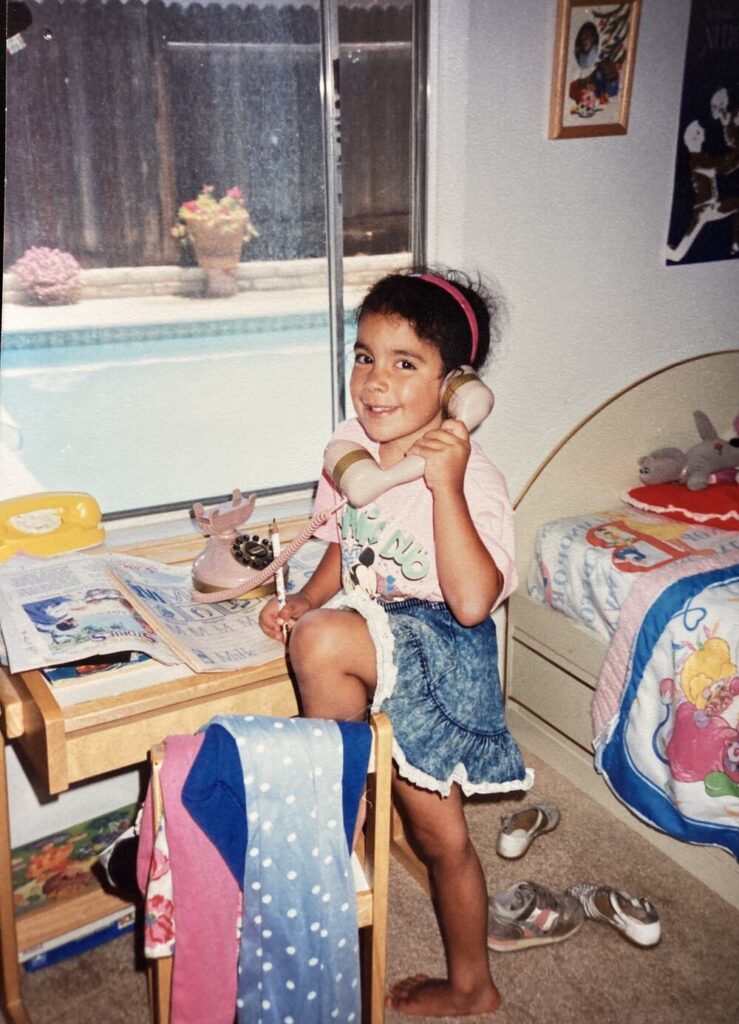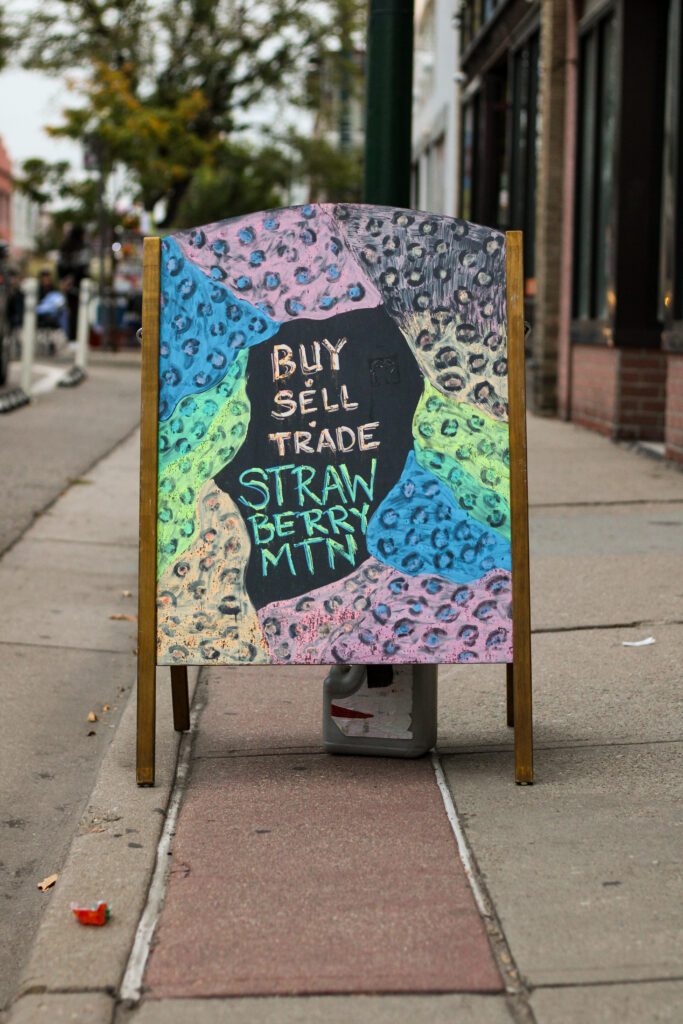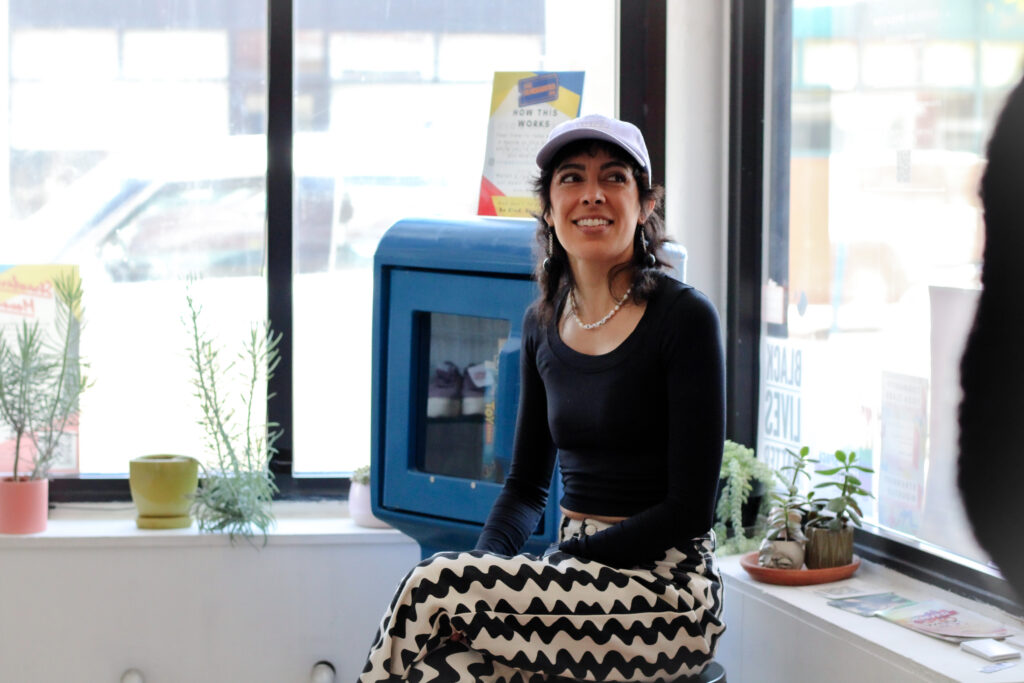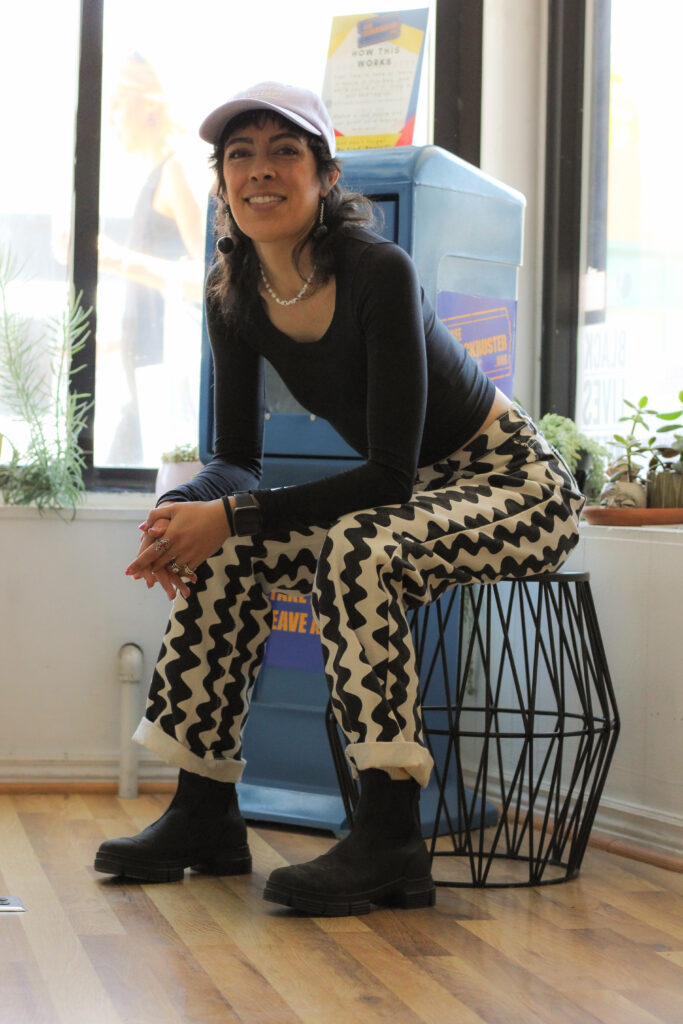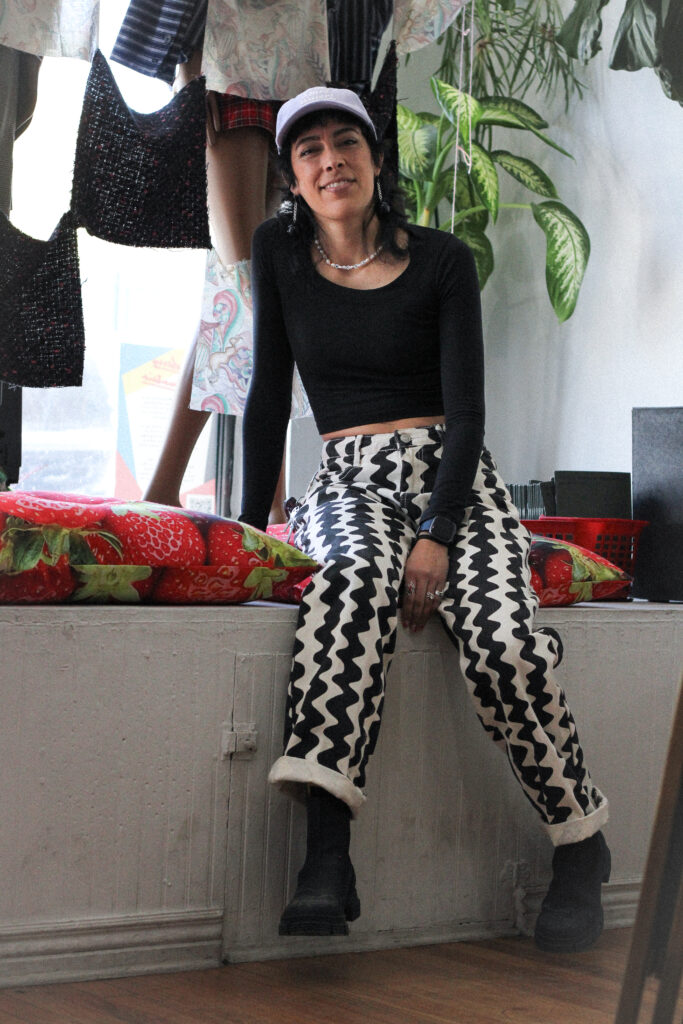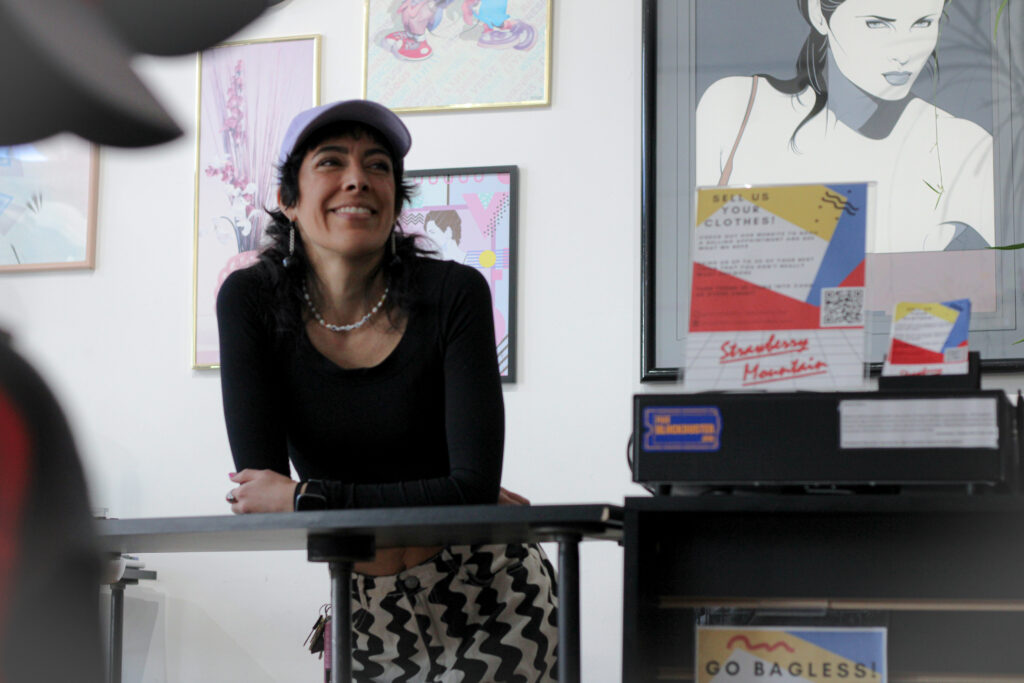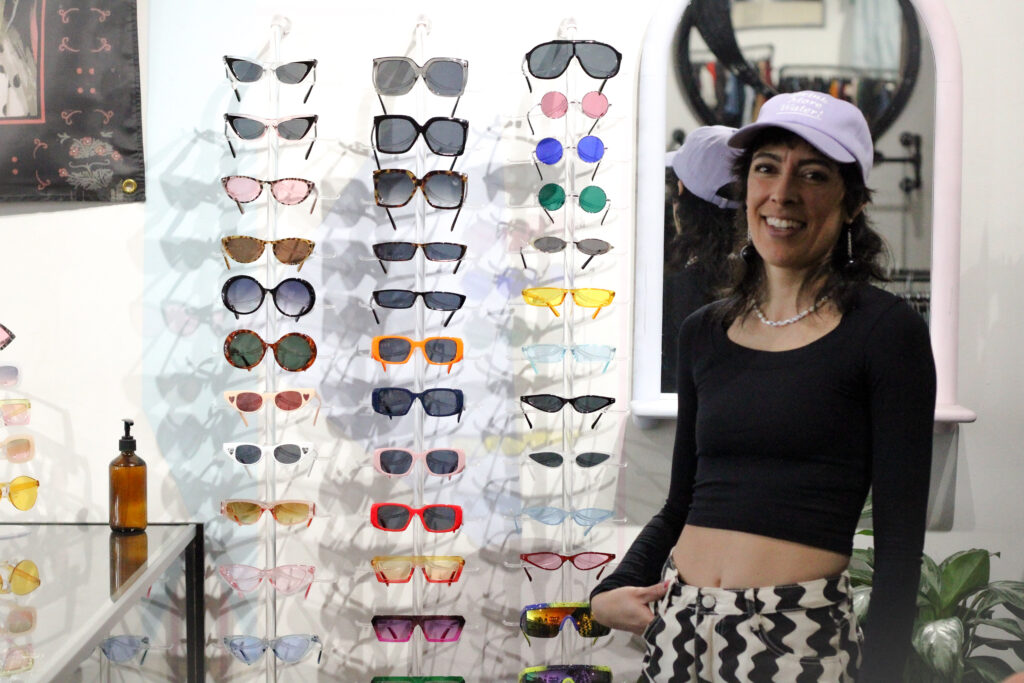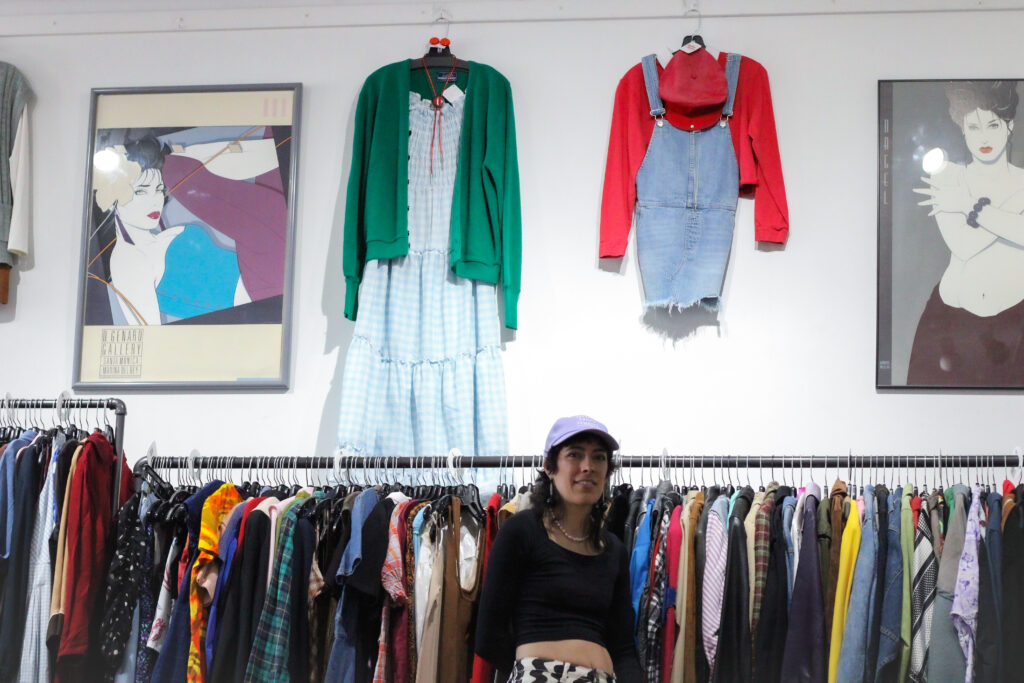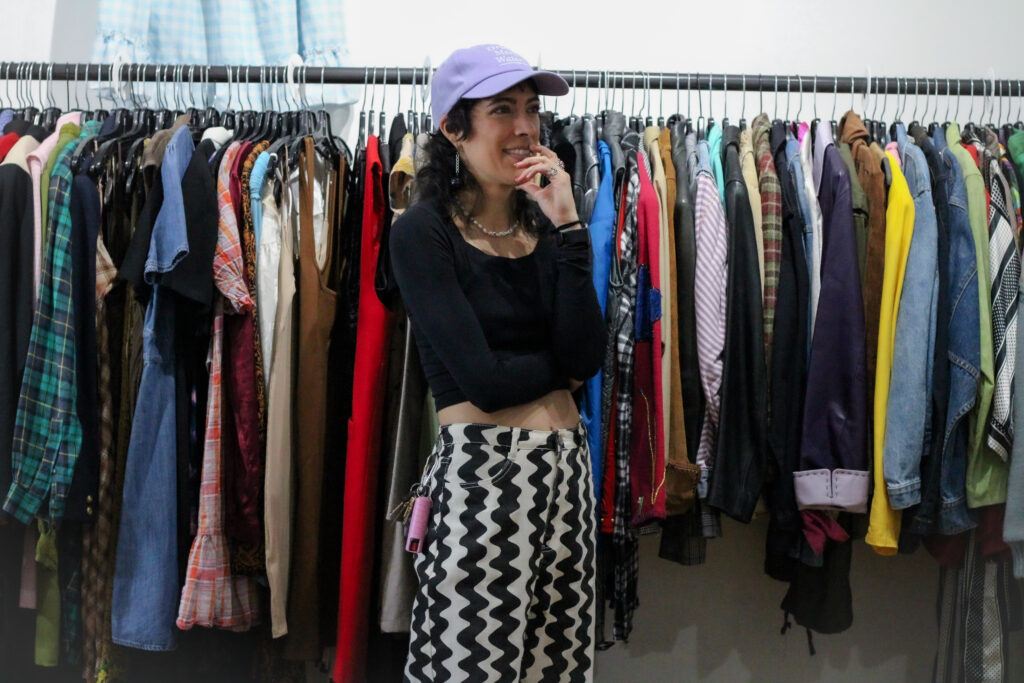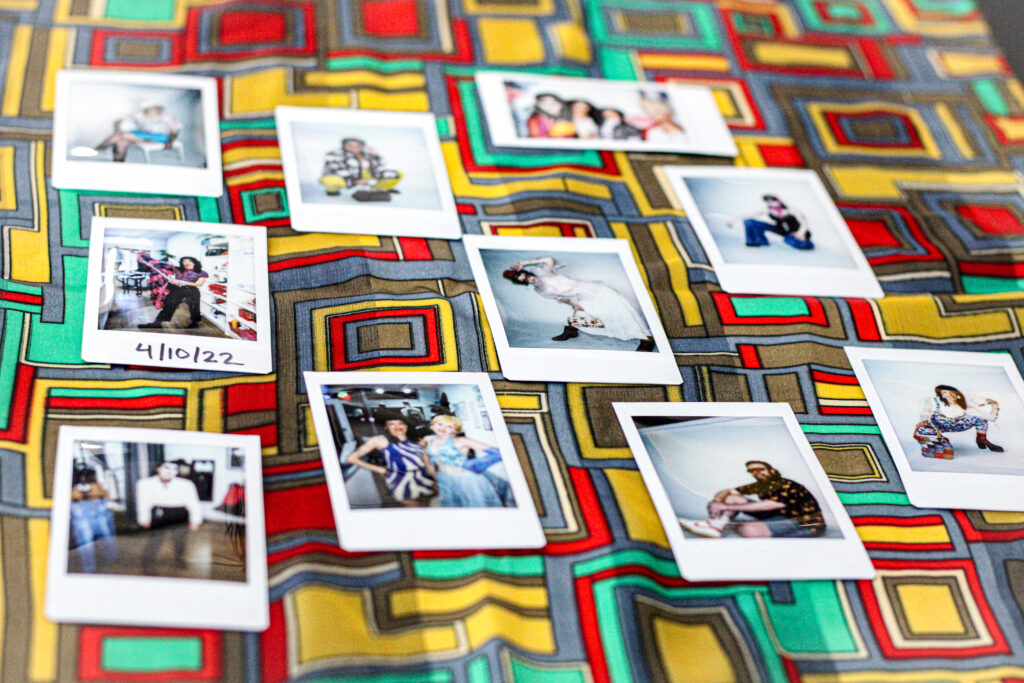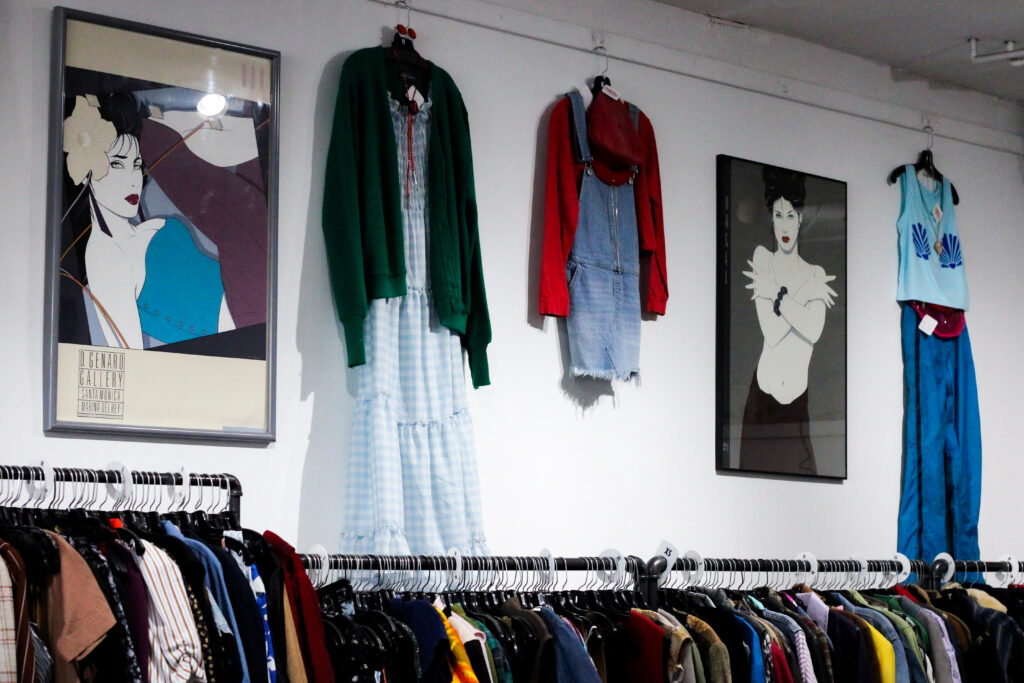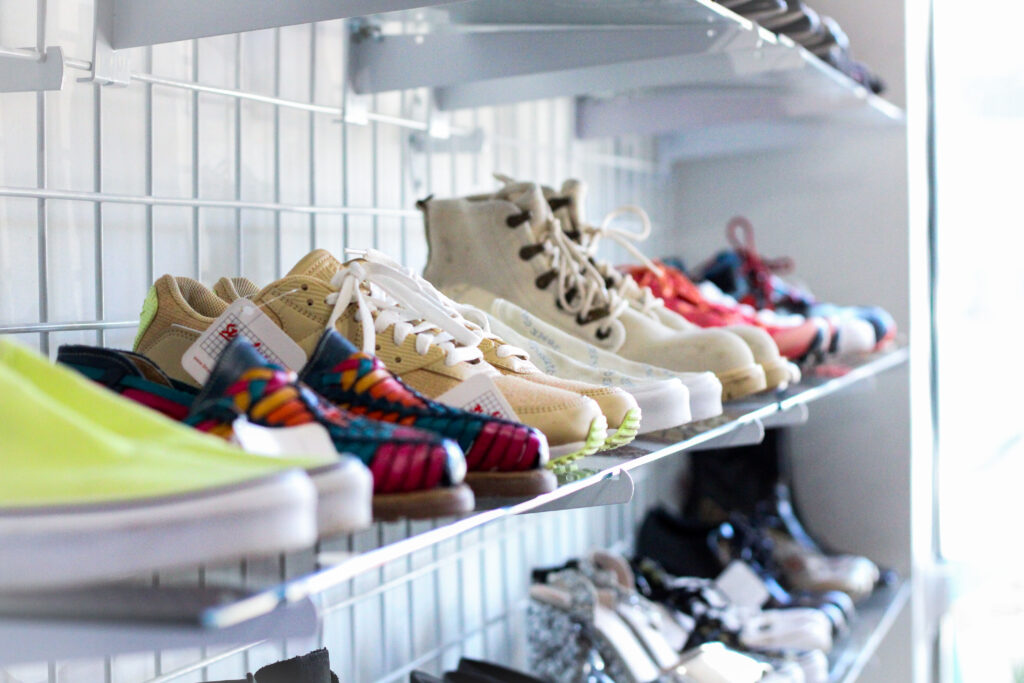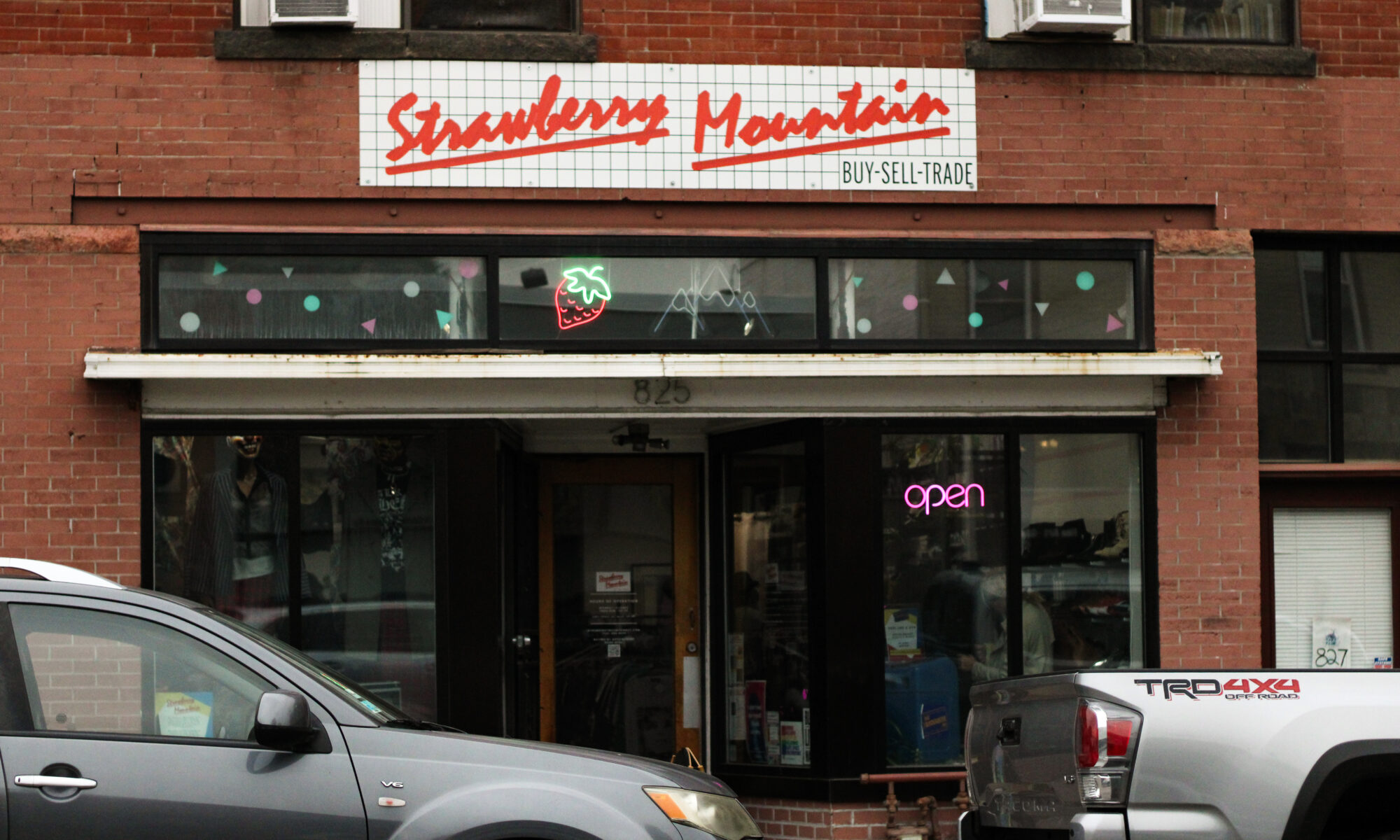Being a kid in the 90s, especially a girl, is an almost guarantee that you’d be following along in Gwen Stefani’s rise to pop-punk fashion and fame. At the time, Gwen’s act gave girls the permission to act out and own their own idiosyncrasies, to use it to rebel in style. Over the decades in music and fashion, she polished away much of the edginess that she embraced as a young musician. Nadia MacKinnon grew up watching Gwen. She too eventually entered the fashion industry, yet, in contrast, has only matured further into the eclectic self-ownership modeled by Stefani to her as a teenager.
Nadia now operates the 90s-aesthetic resale shop Strawberry Mountain, located in the Santa Fe Arts District, using it as a platform to champion her vision of what fashion can and should be. She is part of the sustainable and norm-breaking Slow Fashion movement.
Strawberry Mountain opened in Jan of 2021 (when masking was in full force and vaccines were barely available), and through the highs and lows of creating a secondhand fashion business, she has a hard-won sense of reality of what it takes to build something worthwhile. Still the stylish rebel dreams of a hopeful teenager are thriving within her, vivid and bright.
“I want people to feel successful, to be empowered to be their best self. I want people to be healthy. I want people to be supported and feel supported. I kind of have this utopian mindset in my mind that whatever I can do to get closer to that kind of utopia in my own personal reality, I’ll do it.” Visiting Strawberry Mountain and meeting Nadia is to experience the weight and sincerity behind her vision of fashion and community.
Often Slow Fashion gets defined in juxtaposition of its opposite, Fast Fashion. If Fast Fashion is about corporate success, Slow Fashion is about taking care of the community. If fast is about making money, slow is about anti-consumerism. Fast is wasteful, slow is sustainable.
Kate Fletcher, the design and sustainability expert who coined the term, in more positive terms defines it as “designing, producing, consuming and living better. Slow Fashion is not time-based but quality-based… a different approach in which designers, buyers, retailers and consumers are more aware of the impacts of products on workers, communities and ecosystems… Slow Fashion is about choice, information, cultural diversity and identity.”
Slow Fashion in all its forms gathers about it a deeply sensed intentionality about our place in relationship with each other and to the world. It begins at sustainability and takes into consideration a more holistic view of fashion consumerism.
Nadia’s upbringing was maximally conducive to a life in fashion and the arts. As a toddler she had already begun to tastefully put together her own outfits. Her father was a photography enthusiast, a dedicated documentarian parent with camcorder always to hand. Though shy with other kids, she learned to love the lens, always posing, smiling, and hamming it up for the camera.
All the adults closest to her knew how to sew. Mom, Dad, and Grandma were always mending stitches and sewing patches, so at around eight years old she too picked up the practice. Transitioning into her teenage years, she was enrolled into a private school. “I definitely was the girl who got in trouble for showing midriff or having spikes on my belt or just little things that were technically contraband or ‘illegal’ at school.” Her teenage boundary pushing, encouraged by a variety of musical influences beyond just Gwen Stefani, has remained strongly encoded in her DIY fashion DNA.
In college she initially majored in dance and business. After transferring to a fashion degree, she studied abroad in Italy under teachers who, as their day jobs, worked for established fashion houses such as Roberto Cavalli. A pivotal moment in her education was when she was assigned to do an upcycle fashion show. Like in Master Chef, her teachers revealed the thrifted materials they were to work with and then told the students to “Take what you want and make a line.”
Through a series of serendipitous jobs at resale clothing companies, she grew, leveraging her natural confidence, and earned experience to start Strawberry Mountain where she has preserved that edgy punk thread of teenage yester-year into the vision she has of her business. “It is my personal belief and mission to slow down fashion because clearly it is a huge problem. 99% of our inventory, if not more, is affordable. That’s going to be a fraction of the price that you could find somewhere else, and again that's to combat fast fashion and make sure that people have places that they can shop both locally and sustainably.”
Many clothing companies do their diligence to Slow Fashion in their sustainability practices in the clothes they produce. Strawberry Mountain encapsulates the slowest elements of Slow Fashion, not producing new clothing at all in favor of reselling clothes that otherwise would have ended up in the garbage.
The secondhand fashion industry puts resale at the forefront as a more impactful principle. “If I want to make a difference and actually slow down fashion, I need to compete with what those fast fashion prices are. If I'm going to offer you a sweater, but you can get the same sweater for, you know, a quarter of the price at H&M, you’re probably going to buy that one.”
Nadia pushes this agenda with a store that features clothes in all sizes, all styles, and trends, but the shop itself oozes with the nostalgic 90s vibes that she knows so well. Every corner maintains pre-millennium intentionality and integrity. Soft pastel tones adorn the walls upon which are hung era appropriate prints and posters (think of sharply jaw lined models wearing blazers with shoulder-pads alongside a warm Disney welcome from Mickey and the gang).
On the famous First Friday Art Walks on Santa Fe, she uses the space to give a platform to local artists. Every third Thursday of the month she clears the racks from the floor to make room for a community yoga class. Her blog features educational pieces that encourage smart and intentional consumption. She gives a portion of her profits monthly to local charities (e.g. Planned Parenthood and Denver Community Fridges). The space itself smells of strawberry incense! Every detail is created to welcome and support a wide community of mindful fashion enthusiasts.
Nadia at heart remains “just a girl in the world,” but continues to persevere and grow this dream of people together—beautiful, stylish people—supporting each other in a world sustained by what we love, in this case, no doubt, by what we choose to wear.
